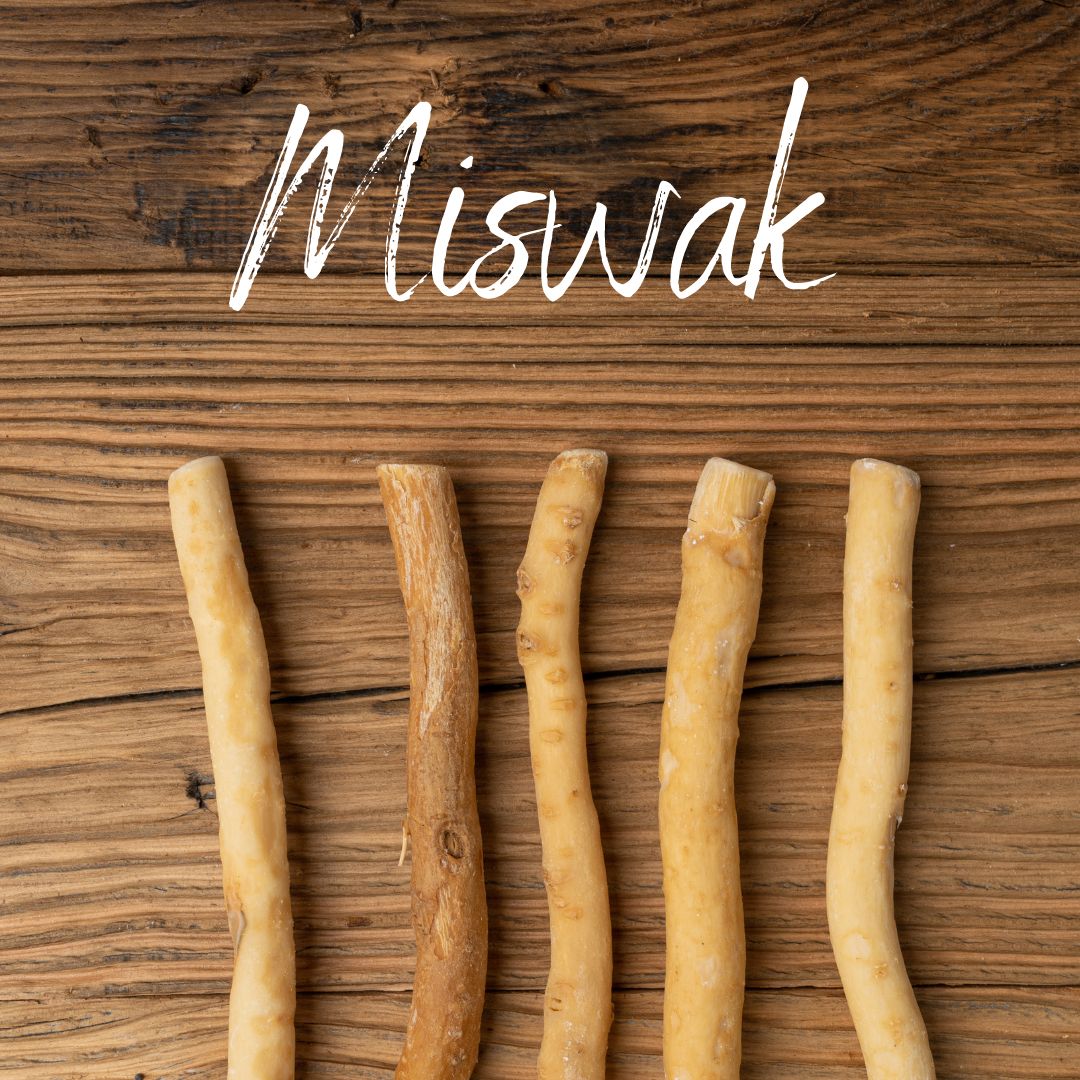
Embracing Tradition: Miswak In Modern Day Dental Care
In a world where technological advancements dominate every aspect of our lives, it's easy to overlook the wisdom of ancient traditions. However, some practices stand the test of time, proving their efficacy and relevance across generations. One such tradition is the use of Miswak, a natural tooth-cleansing tool with roots deeply embedded in ancient cultures. From the bustling markets of ancient Mesopotamia to the serene temples of Egypt, and the villages of ancient India, Miswak has played a pivotal role in daily dental hygiene rituals for centuries. Today, as we strive for more sustainable and holistic approaches to health, Miswak is experiencing a resurgence in popularity, both as a standalone dental tool and as an integral component of modern toothpaste formulations.
The historical significance of Miswak
Miswak's journey through time is as rich and diverse as the civilizations that embraced it. Its origins can be traced back thousands of years, with evidence of its use found in archaeological excavations across the Middle East, North Africa and the Indian subcontinent. In ancient Mesopotamia and India, Miswak was prized for its ability to cleanse teeth and freshen breath, while in Egypt, it was revered as a symbol of purity and vitality.
A traditional tooth-cleansing method
Using Miswak as a tooth-cleansing tool is a simple yet effective process that has stood the test of time. Traditionally, Miswak is obtained from the Salvadora persica tree, also known as the "toothbrush tree," native to arid regions of Africa, the Middle East, and Asia. The tip of the Miswak is chewed or frayed to create bristles, which are then used to brush the teeth in gentle, circular motions. The natural fibres of Miswak, combined with its antibacterial properties, help remove plaque, reduce tartar buildup, and promote gum health.
Benefits of Miswak
One of the most significant advantages of the use of Miswak chewing stick is its eco-friendliness. Unlike conventional plastic toothbrushes, which contribute to environmental pollution, Miswak is entirely biodegradable and sustainable. Additionally, Miswak's natural antibacterial properties can help reduce the risk of oral infections and gum disease, making it an attractive option for those seeking a more holistic approach to oral care. However, cultural acceptance and familiarity with Miswak vary among different communities, influencing its widespread adoption.
In regions where the Miswak tree grows abundantly, such as parts of Africa, the Middle East, and Asia, Miswak sticks and other natural toothbrush alternatives remain a popular choice for oral hygiene among both urban and rural populations. Additionally, Miswak sticks are increasingly available in global markets, catering to the growing demand for natural and sustainable oral care products.
On the other hand, the convenience and availability of modern oral hygiene products (the widespread availability of modern toothbrushes), many people will of course opt for these more convenient options over traditional chewing sticks. Modern lifestyles characterized by hectic schedules and fast-paced living may deter individuals from adopting practices that require more time and effort, such as preparing and using Miswak. While we may not be chewing on Miswak or another kind of chewing stick after meals, we can still enjoy the many benefits of Miswak plant as a component of herbal toothpastes!
Integration of Miswak into modern dental care
Despite its ancient origins, Miswak has found renewed relevance in modern dental care. Dentists and researchers have begun to explore the potential benefits of Miswak plant. Several studies have highlighted Miswak's efficacy in reducing plaque, fighting bacteria, and improving overall oral health. It is an appealing alternative for individuals with sensitive teeth or allergies to certain chemicals found in commercial oral care products.
Miswak in toothpaste formulations
In response to growing consumer interest, Miswak extract or powder is increasingly being incorporated into commercial toothpaste formulations. Miswak-infused toothpastes offer the benefits of traditional Miswak use in a convenient and familiar format. The inclusion of Miswak in toothpaste formulations is believed to enhance plaque removal, prevent cavities, and promote fresh breath. Additionally, Miswak complements other botanical extracts and essential oils commonly used in natural toothpaste formulations, further enhancing their benefits on oral health and hygiene.
Miswak: a sustainable approach to oral hygiene
As we continue to navigate the complexities of modern dental care, it's essential to embrace the wisdom of ancient traditions like Miswak. Whether used in its traditional form or integrated into innovative toothpaste formulations, Miswak offers a natural, sustainable and effective solution for maintaining oral health. Looking ahead, further research and innovation in Miswak-based oral care products hold promise for enhancing oral health outcomes and promoting sustainable practices. By honouring the timeless wisdom of Miswak, we can cultivate healthier smiles and a deeper connection to our shared heritage.
Beyond Miswak, other natural toothbrush alternatives such as neem sticks, bamboo toothbrushes, and other kinds of chew sticks made from various plants are gaining traction among eco-conscious consumers seeking alternatives to plastic toothbrushes. These natural toothbrushes offer not only environmental benefits but also potential oral health advantages, making them a viable option for those looking to reduce their ecological footprint while maintaining optimal oral hygiene.
